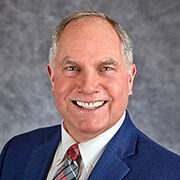June, 2020
Good morning,
criticize / krit-uh-siz / verb / defined as…
- to censure
- to find fault with
- to judge unfavorably or harshly
For nearly five decades, Norman Rockwell's beloved illustrations of everyday life graced the covers of America's favorite magazines. Although a New Yorker, his brushstrokes spoke to the heart and soul of all Americans.
Rockwell painted visual commentaries on the essence of America. Rosie the Riveter became the cultural symbol for working women during World War II. The Problem We All Live With dared to address the Civil Rights Movement—that picture later hung in the White House. The Four Freedoms series identified the essential human rights—the freedom of speech, the freedom of worship, the freedom from want and the freedom from fear.
Rockwell's work—all 4,000 paintings—reminded America of its core values and character, and each creation carried his unmistakable and distinctive style.
A long line of celebrities and politicians lobbied to be immortalized by Rockwell's brush. Presidents Eisenhower, Kennedy, Johnson and Nixon all took a seat in front of the master's easel. Judy Garland, John Wayne, Colonel Sanders and many others took their turns too.
It seemed everyone wanted a piece of the famed illustrator—including his jealous rivals.
That's because, success begats critics.
The aristocratic art world of New York had its fair share of snobs, many of whom gleefully skewered Rockwell. One critic hammered with, "Conventional art allows for interpretation, but Rockwell's syrupy sentimentalism gives me a headache." Said another, "He exhibits brilliant technique, and wastes it on corny magazine covers." Another simply said, "Bourgeois!"
His detractors coined a derogatory insult to label any artist they didn't like--Rockwellesque. Critics have no conscience, mostly because they have no heart.
Sound familiar?
Pastors also have critics—those who feel it's their duty to "touch the Lord's anointed" with hurtful comments, unwelcomed critiques, mischievous gossip or uninformed opinions.
The apostle Paul knew this very well.
Paul's trip down the Damascus Road did more than flip his Christology. By abandoning his rabbinic belief system, he found himself in the crosshairs of every enemy of the Christian faith. He was the target, and every critic had an arrow.
It's doubtful that any of us will endure the endless parade of attacks Paul experienced.
- In Pisidian Antioch, the critics' hatred led to a riot after Paul's preaching.
- In Iconium, antagonists incited the mobs to stop Paul with whatever force necessary.
- In Lystra, his enemies dragged Paul out of town, stoned him and left him for dead.
- In Philippi, foes of the faith had Paul imprisoned.
- In Thessalonica, an inflamed mob chased Paul out of town.
- In Berea, his rivals stirred up the crowds and forced Paul to leave.
- In Athens, the elitists sneered at Paul's teaching.
- In Corinth, the critics regarded Paul as a fool.
This may be why the apostle said, "I press on toward the goal for the prize of the upward call of God in Christ Jesus." In other words, Paul choose to push-through by keeping the main thing the main thing, and remembering the "prize" of God's call.
Not surprisingly, Paul repeatedly encouraged his churches to "persevere," knowing that the enemy's attacks—from within and without—are standard fare.
He also warned his protégé of a specific hypercritic who had done Paul "much harm;" instructing Timothy to "… be on guard against him," yet urging his young disciple to leave vengeance to the Lord. "The Lord will repay him according to his deeds."
Critics have their place, and God will assign it to them. Meanwhile, you and I are to press on.
Blessings,
| 
























































No comments:
Post a Comment